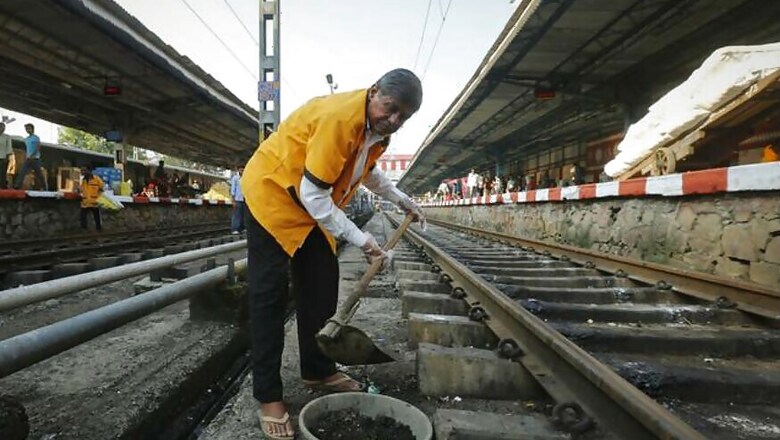
views
New Delhi: Swachh Bharat Mission is not achieving its desired results due to lack of credible on- ground data and the absence of institutionalised tracking mechanisms to measure the health benefits of proper sanitation, said Centre for Science and Environment (CSE) on Thursday.
Noting that there is an urgent need to gather simple, measurable and credible on-ground data, CSE said it is setting up India's first faecal sludge laboratory to test technologies for their effectiveness.
"There has been a huge political and financial investment on the Swachh Bharat Mission by Prime Minister Narendra Modi. The programme, however, is straining to achieve the desired results. There is a struggle to bring in the much-required behavioural change among people to use toilets - the backbone of the programme's success," CSE said in a statement.
It said that key reasons for this is "lack" of credible on-ground data and absence of institutionalized tracking mechanisms to measure the health benefits of proper sanitation, or the adverse impacts of the lack of it.
This conclusion emerged as one of the key takeaways from a National Consultation on Sustainable Rural Sanitation organised on Thursday by CSE.
"Our experience and our work in air pollution bears out that change happens when we make a connection to people's health. And the issue needs to be handled differently for rural and urban areas. While in the urban milieu toilets have to be linked with disposal and treatment systems, in rural areas the priorities should be to address the issue in the context of poverty, behavioural change by linking it with health, water availability, toilet design and waste disposal," said Sunita Narain, director general, CSE.
The major issue with the current approach of the Swachh Bharat Mission, is the undue focus on construction of toilets, she said.
CSE said Sikkim is one of the states that achieved complete sanitation coverage successfully. Haryana and Kerala excelled in their respective sanitation programmes, while states like Jharkhand, Bihar and Odisha failed miserably.
"CSE has started the process of drawing out shit flow diagrams to understand the flow of faecal matter. We are also setting up India's first faecal sludge laboratory to test technologies for their effectiveness," said Narain.
This will be a crucial first step towards such data gathering, especially in understanding sanitation in the rural context, she added.




















Comments
0 comment